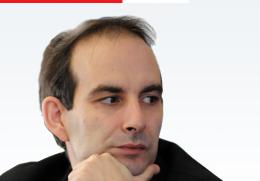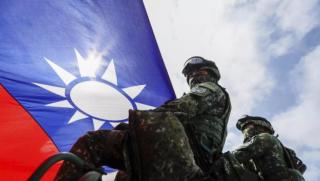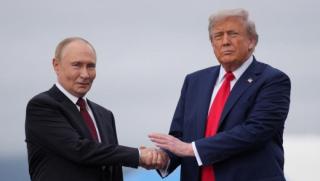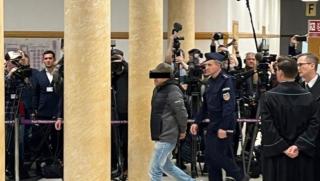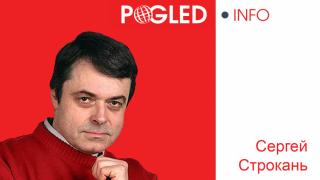The Republican presidential race, which has passes through Florida this week, has shone a surprising spotlight on a foreign policy issue not anticipated in the 2012 US presidential race: America’s relations with Russia.
Even more surprising is the fact that the Republican candidate who was the first to add the words “Russia”, “reset” and “Putin” to his election vocabulary was not hawkish Newt Gingrich, but Mitt Romney. The multimillionaire and ex-governor of Massachusetts, who has been lashing out at Obama’s reset with Russia, is hardly an icon for neocons. After all, it was the same Mr. Romney who was viewed as a moderate and agreeable alternative to the hardline republican candidates supported by staunch conservatives and loudmouth Tea Party folks.
On the eve of this week’s crucial primary in Florida, proving to be a neck-and-neck fight with Newt Gingrich, Mitt Romney has sent Florida voters a strong message in an interview released by his team. Echoing President Reagan, who called the Soviet Union “an Evil Empire” to be destroyed by the “forces of good,” Mr.Romney listed Russia among the “world’s worst tyrannies,” along with Cuba and Iran.
Mitt Romney’s comments were also reminiscent of his former Republican rival, Senator John McCain, known for his deep personal animosity to Russian leader Vladimir Putin. (In some parts, Mr.Romney’s revelations also reminded me of the escapades of the late Tom Lantos, who wanted to expel Putin’s Russia from the G8).
Mitt Romney went as far as calling Mr.Putin “a real threat to the stability and peace of the world” and accused him of attempts “to restore the Russian empire” (a scenario the leading Republican hopeful vehemently opposes). "I think he endangers the stability and peacefulness of the globe," the ex-governor of Massachusetts said of Putin.
Even given all reservations over Russia’s politics and Vladimir Putin’s role in global affairs, Mr. Romney’s jabs can hardly be taken seriously as what he says of Russia seems to lack credibility. It is clear that even with all its troubles with democracy, Russia is neither a Cuban-style socialist dystopia, nor an Iranian theocracy run by an Ayatollah – far from it. A perception of Putin as a demiurge of evil, as a demon threatening the globe, looks like a new political mythology formulated for American domestic consumption. Or, to put it bluntly, it might be a product of the Republican candidate’s paranoia.
However, it seems that in trying to emerge as the Republican presidential contender who will face Barack Obama at the 2012 presidential election, Mitt Romney has deliberately chosen to attack Russia more than once. In a recent video circulated by his campaign team, Mr. Romney denounces an Occupy Wall Street protester, arguing that the popular movement has no right to call itself “99 per cent of America.” According to him, the movement is alien to American interests and finds itself on the wrong side of history. “If you’ve got a better model — if you think China’s better, or Russia’s better, or Cuba’s better, or North Korea’s better — I’m glad to hear all about it. But you know what? America’s right, and you’re wrong,” said Romney, calling on the protestor to – guess what? – “go back to Russia!”
I am not surprised that Mr.Romney’s extraordinary if somewhat hasty efforts to shed his liberal image, inherited from his term as governor of Massachusetts, has already started to pay off. There is at least one sure sign that this is the case. In a recent article, published in The Wall Street Journal under the title “Romney: The Conservative who can beat Obama,” John Bolton, a Republican hawk with a long record of serving in the Reagan administration as well as the administrations of both Presidents Bush, has thrown his weight behind Mitt Romney’s election campaign.
Describing Mitt Romney’s numerous merits, as he sees them, John Bolton homed in on Romney’s tough line on Russia. “Mr. Romney has emphatically rejected the Obama administration's wrongheaded Russian ‘reset’ policy, and he was the first presidential candidate to oppose the flawed New Start arms control treaty,’’ writes Bolton, giving Mitt Romney’s campaign his stamp of approval.
Statements like this give the impression that all this anti-Russian bravado underscores the vulnerability of a “reset” policy which rests solely on the political will of President Obama, and which could be immediately scrapped and/or reversed if Obama loses the election to Romney.
There is every reason to believe that after narrowly losing the crucial battle over the new START treaty with Russia, endorsed by Congress in December 2010, a powerful part of the political establishment in Washington today is seeking revenge. So their recent siding with Mitt Romney looks like a Mephistophelian deal: we support you to win the election and you, on winning the White House, dump the heritage of the damned reset.
All in all, after the recent years of thaw, US-Russian relations are probably entering their most turbulent season. Is Mitt Romney a person who will try to emerge as a new Reagan in his dealings with Russia? One may say, let him outsmart Obama and win the November election first. However, I believe that when the dust settles, Mitt Romney will have to tone down his anti-Russian rhetoric.
“Playing the Russian card,” as it is being done now, will probably help him to win some votes. But acting in the capacity of president, Mr. Romney will have to negotiate with Russia on a number of issues crucial to US strategic interests. Therefore, he will have to mind his language.

